Studies show that speed limit, advisory speed limit, and warning signs are all likely targets for vandalism. As radar speed signs loosely fit into these sign categories, they should be resistant to impacts and tampering in order to preserve the visibility of their display message and their positive traffic calming effect.
The SpeedCheck® radar speed sign has built-in protection from vandalism and the environment. We ran the SpeedCheck display through a series of tests to see how it held up to extreme vandalism and weather scenarios. Watch our video below to see how it held up.
Extreme Tests
Ice Cannon Test
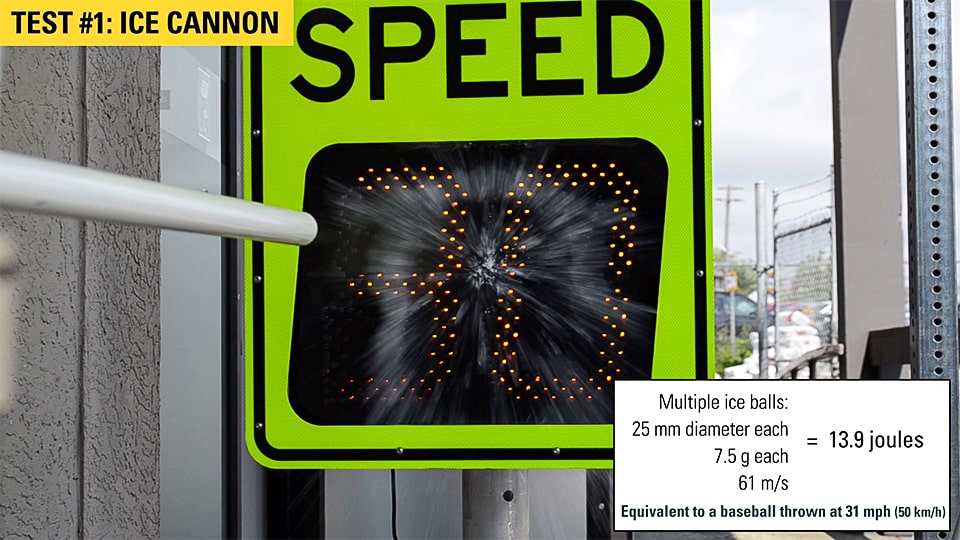
For our first test, we fired multiple ice balls out of an air cannon to prove the display can withstand extreme weather events, like strong hail. Here are the values tested:
- Multiple ice balls:
- 25-millimeter (1 inch) diameter each
- 7.5 grams (0.3 ounces) each
- Fired at 61 meters per second (200 feet per second)
- Total energy = 13.9 joules
This is equivalent to a baseball thrown at 31 mph (50 km/h). Not bad, but we can go bigger.
Pendulum Test
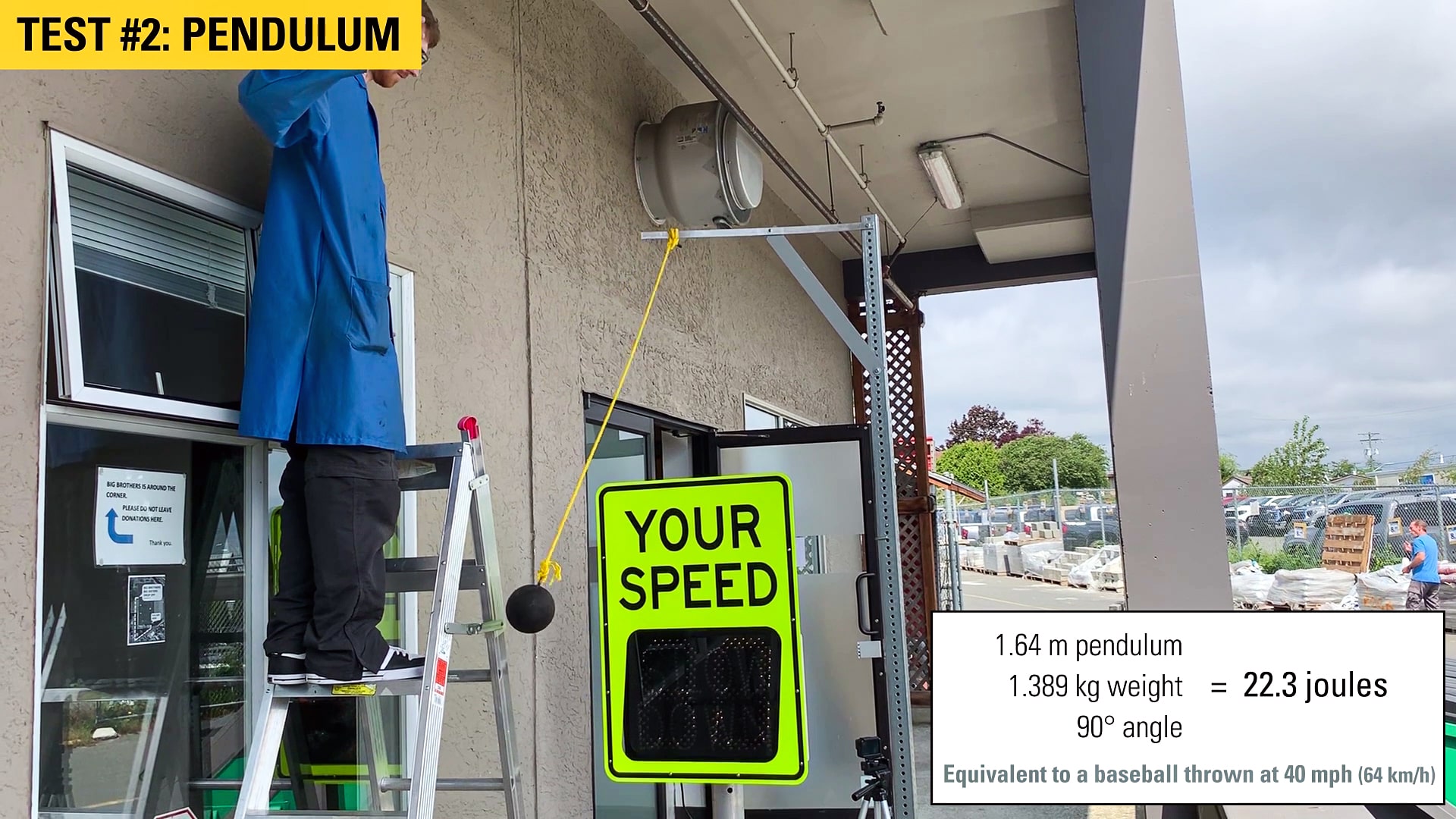
In our second test, we set up a weighted pendulum system and let the weight swing down and hit the display window from a 90-degree angle. Here are the values we tested:
- 1.64 meter (5.4 feet) pendulum height
- 1.389-kilogram (3-pound) weight
- 90° dropping angle
- Total energy = 22.3 joules
This is equivalent to a baseball thrown at 40 mph (64 km/h). We’re getting up there, but how much more impact can our display take?
Jump Test
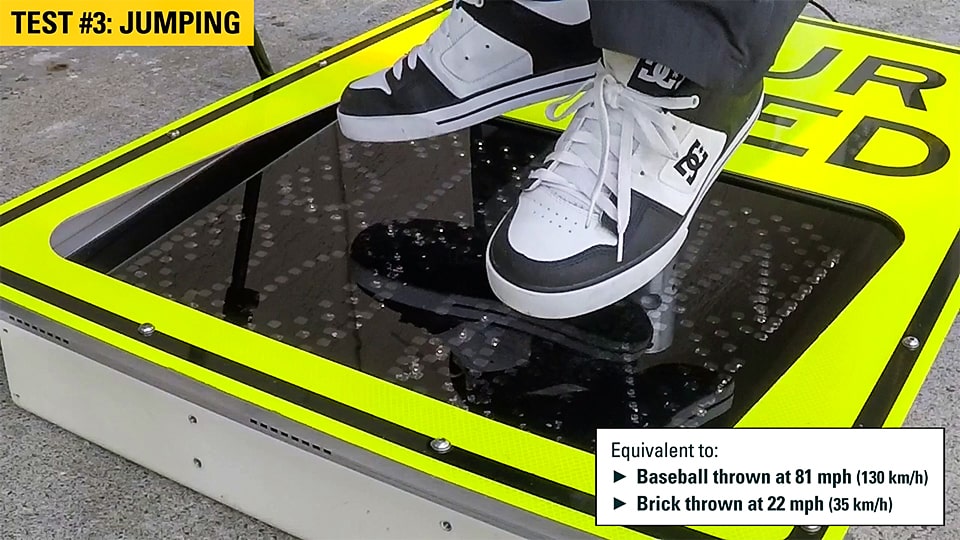
For our third and final test, we laid the display on the ground and jumped on it like a trampoline. Here are the values we recorded:
- 66-kilogram (145-pound) participant
- 15.2 centimeter (6-inch) jumping height
- Estimated 1.73 meters per second (5.68 feet per second) velocity
- Total energy = 98.6 joules
Now we’re talking: this is equivalent to a baseball thrown at 81 mph (130 km/h), or a brick thrown at 22 mph (35 km/h).
After all these tests, the SpeedCheck display was unfazed and operated as normal, without any damage to the LEDs or internal components. How did our SpeedCheck radar speed sign withstand these tests?
SpeedCheck’s Built-In Protection
The SpeedCheck display is protected by a shatter-resistant polycarbonate window combined with an inner LED flex board that acts like a shield and absorbs impact, keeping its internal components safe from damage.
Our polycarbonate window is 1/4” thick, crack-resistant, and UV-stabilized with a UL 746C F1 rating for plastics. Because of its design, graffiti and paint can be easily removed from the window without smudging the display or compromising the LEDs. And, if the window is damaged beyond repair, it can be quickly replaced on site.
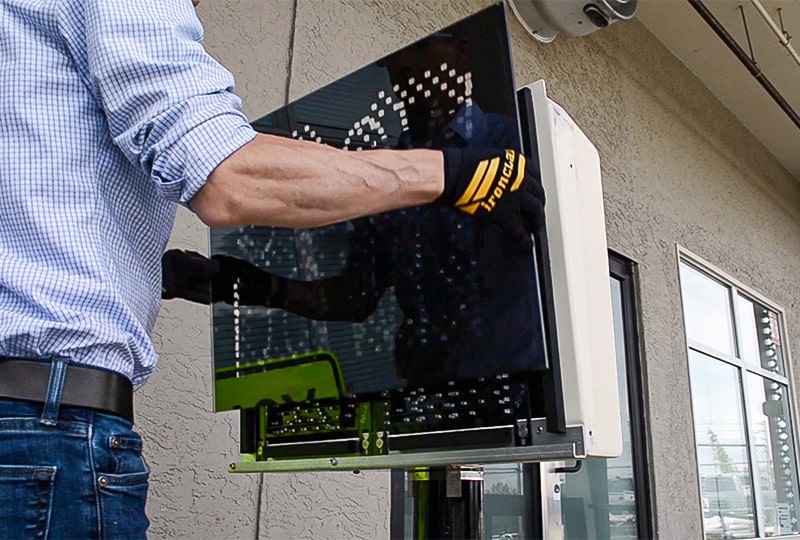
We also use a flexible LED board that can deflect (be pushed in) 2+” without damaging its circuitry. This allows the display to safely absorb impacts, whether from heavy thrown objects or someone jumping on the display face.
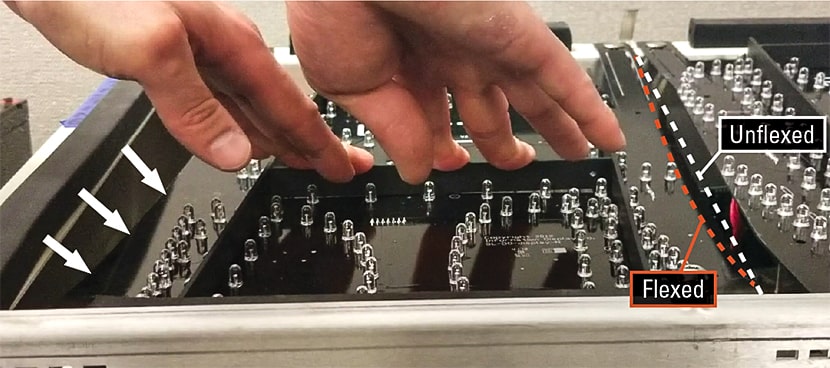
This protective design allows the SpeedCheck radar speed sign to resist vandalism and the environment without compromising the effect of its message.